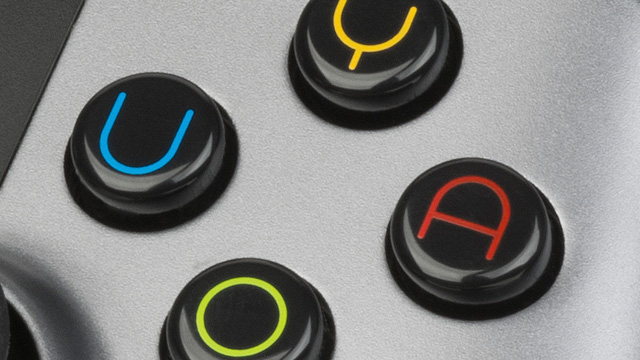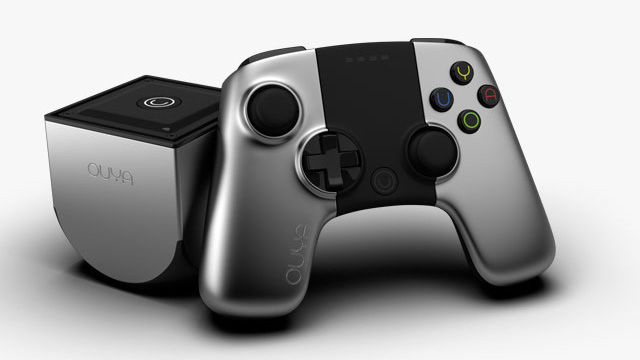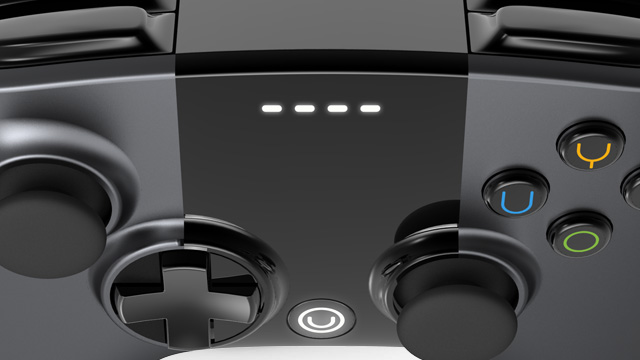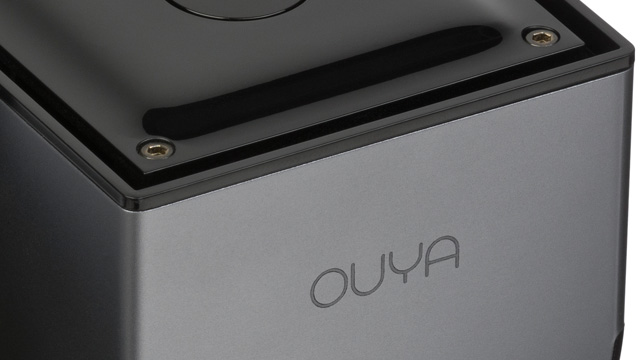
It promised a revolution. It promised a common consumer’s upheaval to the traditional console market: taking down the last stronghold against democratizing the creation and sale of video games, the home console market. It promised that the future wars of gaming would be fought with ideas, not hardware specifications. Ouya promised a lot when it first showed itself to the world.
It has been two years since the first Ouya developer units arrived in the hands of intrepid game creators. The honeymoon has long since faded, and public favor left along with it. I doubt the system showed up under many Christmas trees last year, as the general public is still largely unaware of its existence. However, does this mean the system failed in its original intention? Surely its sales numbers are not the dent in the console market share many hoped they would be, but does that really mean the entire endeavor was for naught? The Ouya changed gaming in a very important and significant way, and we are all the better for it. Moreover, it achieved the ideological goal which it set out for itself.
The Ouya’s goal was to bring the same level of openness and accessibility PC users have enjoyed since inception to the console market. Independent gaming has been on the rise in the past few years, coming into significance roughly halfway through the past generation, and becoming an important part of a console’s lineup a few years later. Still, many indie developers complained about the restrictive certification cycles and expensive development kits required to develop for modern consoles, longing for publishing policy reform for small-scale studios.

Ouya was likely developed during the period in which these issues were at their peak in gaming discussion, and it didn’t seem like there was going to be a solution any time soon. In all fairness, this was more or less the climate up until the system’s Kickstarter announcement, barring a few minor improvements to accommodate independent developers. When the system made its teaser debut, the fervor surrounding it was far more focused on its pitch of democratizing game development in the console space than it was about the hardware itself. This is an important point, as it shows just how integral the console’s message was to its existence. In this way, the system was more of a means to an end rather than a technological competitor. Many seem to have forgotten this when they assess the Ouya, and it explains some of the initial criticisms.
When the Ouya was released, many judged it based on its technical prowess compared to the then-current Xbox 360 and PlayStation 3. Many also criticized it for running a modified version of Android, claiming that a phone plugged into a TV would be just as effective. Both of these criticisms misunderstand the intent, and why it exists at all. The Ouya was never meant to be a powerhouse of technical tricks and hardware features; that was a space already dominated by the traditional consoles. Making its home in the low end of the market was the only way the console could succeed, and the system nailed that with a low price point to match its hardware. Plus, the decision to use Android as its base for the operating system was meant to allow developers already familiar with one of the most popular software platforms to date to have a simple means of migrating.

However, the buzz itself was the most intriguing and important part. Because the open nature of the system was the most hotly-discussed topic, it brought even more attention to the restrictive hoops independent developers had to jump through in order to release their games on consoles, and the bigger companies took notice. Microsoft and Sony soon adopted more friendly policies towards indies. Microsoft soon dropped the re-certification fee for games, then the ID@Xbox program supplied free development kits and certain waived publishing fees for independent developers. Sony adopted similar policies such as its Pub Fund and supplying more free development kits. Sony also began to actively seek out popular PC independent games to have console exclusivity to PlayStation platforms in exchange for publishing support.
As of this year, all four of the biggest names in game engines have announced some tier of free availability for developers. Where once-independent developers had to go far out of their way to appease the console platform-holders, now any developer that has proven itself competent has the barrier of entry significantly lowered. All of this has lead to a far healthier industry wherein such smaller releases which innovate and take more chances have received comparable attention to some big-budget releases. This happened in no small part because of the splash the Ouya made to appeal to the smaller studios in the console space.

In addition, the Ouya established the viability of implementing mid-tier gaming functionality into set-top boxes. Many major players in streaming media have since released controllers for their media streamers to push their capability as gaming machines. Amazon, Nvidia, Google and Sony have all released small, low-end media boxes with a larger focus on gaming than previous efforts. It is unlikely such efforts would have been released if not for the initial consumer interest in the Ouya proving that there is a potential market for gaming on a compact, cheap device.
While games have yet to take off on these new devices, with the arguable exception of Amazon’s device line, it shows a game console’s main draw (Accessible gaming on a large screen) can live outside of the high-end market. Diversification is healthy for a market, and gaming’s long-precedented race to the top leaves a large segment of the potential console market unserved – a market which previously either went with last-generation hardware or knockoff consoles. The Ouya paved the way for worthwhile and unique cheap console-capable devices.
Regardless of your thoughts on the Ouya, its effect on the industry should not be understated. It shook up the major platform holders enough to revise their publishing policies, made independent games close to equals in a console’s lineup and opened the door for an entirely new segment of the console market. Was a notable shift in the market not the company’s goal in the first place? Even if it dies a martyr, credit should be given where it is due, and the Ouya’s effect on the industry will be a gradual one that grows with time.



















